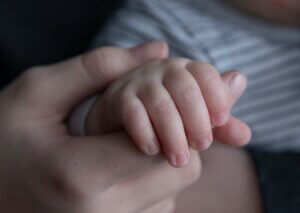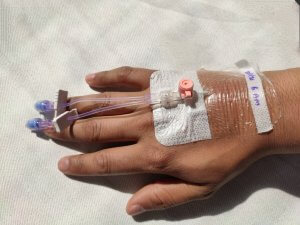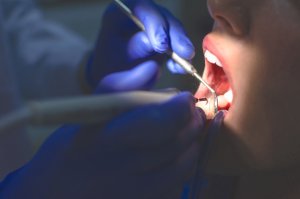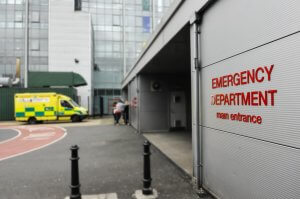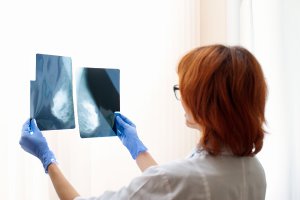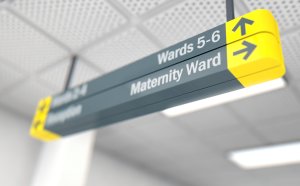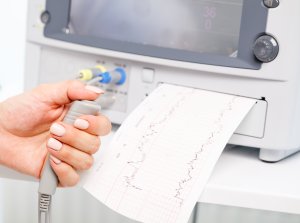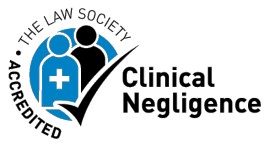Orthopaedic Clai
Orthopaedic surgeons are specialised doctors that diagnose and treat all types of conditions of the musculoskeletal system, namely bones, joints, muscles and tendons.
“Small but very effective and experienced team so every client benefits from the personal touch but also highly skilled litigation know-how. Capability of the team means they can handle all aspects of very complex cases as well as straightforward matters.”
“Osbornes Law is an established firm which handles a breadth of complex and high-value clinical negligence matters.”
The nature of orthopaedic work falls into two main categories:
- Trauma, which includes fractures and dislocations
- Other conditions such as infection, tumours, degeneration and congenital problems
Like doctors in other fields, orthopaedic surgeons tend to specialise into subgroups, such as spinal surgery, trauma or paediatric surgery.
Orthopaedic errors
Orthopaedic surgeons can be prone to error. The Orthopaedic Error Index for hospitals aimed to provide the first national assessment of errors within orthopaedic surgery and trauma provides the statistics. For the period 2009-2010, 155 hospitals reported nearly 49,000 orthopaedic related patient safety incidents with varying degrees of harm: 70.5% no harm, 23.5% low harm, 5.4% moderate harm, 0.5% severe harm and 0.1% death.
Diagnostic Errors with orthopaedic injuries
Diagnostic mistakes in orthopaedics are to a large extent due to misreading X-rays and missing fractures. The current organisation of orthopaedic cover in Accident and Emergency Departments means that junior doctors are usually first to review X-rays. This leads to a greater chance of misdiagnosis of an injury. Hand and foot fractures are the most commonly missed.
The Aston Villa midfielder Jack Grealish has spoken out about playing with a fractured shin. In December, he injured his leg during a match. The pain which radiated into his ankle and foot was ‘horrific.’ The team doctor gave him an injection to relieve the pain and he continued to play. It was not until the following morning when he went for a scan, that the fracture was diagnosed.
In another recent case, an otherwise fit and healthy woman who sustained a fractured femur while running was mis-diagnosed as having a pulled hamstring muscle. Despite severe pain and swelling and being unable to weight-bear, no X-rays were taken. When the fracture was finally discovered four days later, she underwent an operation to straighten her leg, but died on the table due to a cardiac arrest. Her traumatised family believe the delay in diagnosis contributed to her death and are currently awaiting the results of the inquest.
Equipment errors
A report in the Health and Safety Journal published in February 2019, highlights a National Patient Safety Alert issued by NHS Improvement. There are concerns that thousands of patients received incorrect metal plate implants during their orthopaedic operation. X-rays across more than 140 trusts are to be reviewed in order to determine which patients had surgery with a metal plate for a long bone fracture since February 2018. The review was prompted after metal plates in two patients buckled. Patients with the wrong plate may require further surgery.
There were also reports that orthopaedic surgeons in a German hospital mistakenly implanted femoral components for total knee replacements without cement, even though the implants were designed to be used with cement. Of the 47 patients affected, 30 had to undergo revision surgery.
Wrong part of the body
You may be surprised to know that the incidence of wrong site errors is the highest in orthopaedic surgery, when compared to all specialities.
In 2018, the British Medical Journal reported that a consultant orthopaedic surgeon was struck off the medical register when he operated on the wrong part of his patient’s knee and then falsified records to cover up his mistake. His patient, a 28-year-old footballer now suffers with severe disability of his knee as a consequence. The GMC panel chair said that the surgeon, ‘Demonstrated a flagrant disregard of his duty of care, both with regard to his clinical failure and with his attempt to conceal his error’.
Medication errors
Medication errors can occur both inside and outside the orthopaedic operating theatre. A paper produced by The Royal College of Surgeons outlines how anaesthetists working in orthopaedic surgery settings have made errors that resulted in successful litigation. In total for the study period, nearly £500,000 was awarded to patients due to medication errors committed by the anaesthetist, including one example where pure alcohol was injected in a nerve block procedure, instead of local anaesthetic. The authors also described how two cases of wrong-side nerve block resulted in compensation paid to the patients. In another case, when an anaesthetist shaved and prepared the wrong leg for knee arthroscopy, the patient was awarded £8,300 in compensation.
Orthopaedic negligence claims
At Osbornes Law we are acting for several clients who have suffered medical negligence caused by inappropriate screw length in corrective bone surgery which has led to pain and suffering, damage to nerve during orthopaedic surgery, incorrect surgical procedure which has led to long-term disability of the foot and mobility problems.
If you think that you may have suffered due to orthopaedic negligence, contact our specialist team of medical negligence solicitors for a free confidential discussion. In order to prove negligence, there must have been a duty of care that was breached, and an injury or harm resulted as a consequence. Our team of specialists will advise you whether or not you have a viable claim for compensation and we will support you through the process.
Our Promise to You
- We will review your potential claim by advising you on how to sue the NHS for negligence or other alternative procedure if your case does not relate to NHS care and treatment.
- We will not charge a fee for our time in reviewing your case.
- We can assist you with any issues that you may have regarding the complaints procedure or that you encounter in obtaining copies of your medical records.
- We will advise you of the course of action in respect of your case.
Contact us
Call us 020 7485 8811
Email us Send us an email and we’ll get back to you
“The team is very quick and efficient in responding."
"Obsbornes Law is always client-focused and works tirelessly to obtain the best outcomes for clients."
‘They are ambitious for their clients and expect high standards from all who work with them.’
"Osbornes somehow combine the accessibility of a local firm, with the professional standards of a national or city outfit."
"Osbornes, is described as having ‘superb judgement and a medical knowledge that is second to none."
Stephanie has developed a particularly strong reputation for her handling of birth injury claims, as well as cases concerning surgical negligence and delays in surgery.
"An excellent firm which achieves fantastic outcomes for clients."
"Stephanie Prior takes on complex cases and gets excellent results. She has a background in medicine which serves her clients well and is a realistic but tough litigator."
"Stephanie Prior is hugely dedicated, adored by her clients, tenacious, efficient and extremely knowledgeable."
"Stephanie Prior is very good with troubled clients and is easily able to make them feel at ease."
"Stephanie shows sensitivity and deals with things in an understanding way."
Osbornes provides a very intimate and personal client service which is increasingly rare in this sector.
The lawyers in the team are highly experienced and will drive cases very hard on behalf of their clients.
"Stephanie Prior has a realistic attitude to the complexities of the cases. She wins the trust of her clients and goes the extra mile to ensure they get the best outcomes."
"Stephanie Prior... manages a varied caseload, including obstetric claims, child and adult brain injury cases and fatal and non-fatal spinal cord injury cases."
"Stephanie is experienced, knowledgeable of all aspects of clinical negligence work, and strategic in running cases."
"An exceptional outfit. They take on difficult cases, fight hard and win."
"The team were extremely professional in putting my needs first. There was a joined-up approach to catering for the client, and all lawyers involved were briefed and constructive."
Stephanie Prior is always very professional and kind. Highly recommended.
Quite simply excellent, with a highly competent and well-rounded team. They understand complex medical litigation and have been our lifesavers, and we will always owe them our immense gratitude.
News & InsightsVIEW ALL
- 10.8.2023
Ambulance Delays Affecting Rapid Patient Treatment
Failure to Meet Ambulance Response Targets In 2017, the Secretary of State for Health accepted the new ambulance performance standards recommended...
Read more - 9.6.2023
Early Notification Scheme – is it helping or failing...
What is the Early Notification Scheme? The NHS Early Notification Scheme (“ENS”) has reached its sixth anniversary. Established in April 2017,...
Read more - 5.6.2023
Are pharmacy closures putting patients at risk?
It has been reported in the press that chemist closures will have an impact on patients living in deprived or...
Read more - 11.4.2023
Osbornes Instructed After Local Authority Data Breach
Osbornes Law has recently negotiated a settlement on behalf of two clients who had their personal information inadvertently released to...
Read more - 23.3.2023
Private Pregnancy Scans and Substandard Care
In the news, it has been reported that private clinics that offer pregnancy scans to women are not meeting the...
Read more - 7.3.2023
5-figure settlement for infusion leak to mother
Elline Demetriou has reached another successful outcome for a Claimant, who pursued a post C-section birth injury to mother claim...
Read more - 14.2.2023
The risk of extravasation injuries during iron infusion...
Many patients with low iron, particularly during pregnancy or postnatally, may be advised they need an iron infusion such as...
Read more - 9.2.2023
Perineal Tear case settles for 6-figure sum
Stephanie Prior recently settled a claim relating to a woman who delivered her baby after a traumatic labour. Her son...
Read more - 23.1.2023
Settlement agreed in dental negligence claim
Recent Settlement in a Complex Dental Negligence Case The Medical Negligence team have recently negotiated the settlement of a complex...
Read more - 13.1.2023
Delayed diagnosis of appendiceal cancer
The medical negligence team at Osbornes Law has recently settled a case involving a patient who passed away following a...
Read more - 14.12.2022
Successful settlement for negligent care during kidney transplant...
Claimant v Royal Free London NHS Trust Osbornes have reached a settlement agreement on behalf of a Claimant who brought...
Read more - 10.11.2022
Successful claim against dental practice after negligent treatment
Osbornes Law have reached another successful outcome for a client, who pursued a claim against dental practitioners due to medical...
Read more - 9.11.2022
Delayed transfer to Accident & Emergency causing harm
The Healthcare Safety Investigation Branch (HSIB) has identified that patients may come at risk of harm whilst waiting in ambulances...
Read more - 9.11.2022
Breast cancer screening mammograms and negligence
Breast cancer screening has improved significantly in the UK due to research bettering the understanding of this terrible disease, which...
Read more - 28.9.2022
Women more likely to have symptoms ignored by...
An increasing number of women in the UK feel brushed off by GPs when presenting with real symptoms, with many...
Read more - 21.9.2022
Are maternity services safe? – Part 2
In April last year I wrote a piece about government setting up a taskforce to look into why there are...
Read more - 8.9.2022
Poor interpretation of CTG can result in stillbirth...
Poor interpretation of a Cardiotocograph, more commonly known as a CTG, is a leading cause of stillbirth and brain injuries...
Read more - 9.8.2022
New interactive rating tool reveals NHS wait times...
Amidst record-breaking heatwaves and a lengthy patient waiting list due to COVID backlogs, it is not surprising that this summer...
Read more - 1.8.2022
Bereavement Following Treatment at Basildon Maternity Unit
Case Overview Stephanie Prior’s death by medical negligence claim relating to the death of Gabriela Pintilie has been settled...
Read more - 14.7.2022
Insulin overdose in hospitals due to limited staff...
A century ago, insulin was first used to treat a 14-year-old boy dying of type 1 diabetes. A hundred years later,...
Read more - 6.7.2022
GP Negligence claim leading to fatality successfully settled
Osbornes acted for a Claimant who brought proceedings on behalf of the estate of her late son, X, relating to...
Read more - 6.7.2022
NHS aims to reduce waiting times with Elective...
The NHS recently recorded their waiting list to be at 6.5 million, a record high. Much of this backlog is due...
Read more - 29.6.2022
Nottingham Maternity: Donna Ockenden to Chair Independent Inquiry
An interim report on the state of maternity services at Nottingham University Hospitals NHS Trust has just been released. However,...
Read more - 23.5.2022
Successful Claim Against King’s College Hospitals
The birth injury lawyers at Osbornes Law have recently negotiated the settlement of a case in which our client sustained...
Read more








